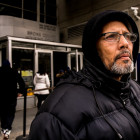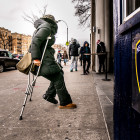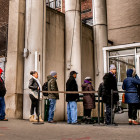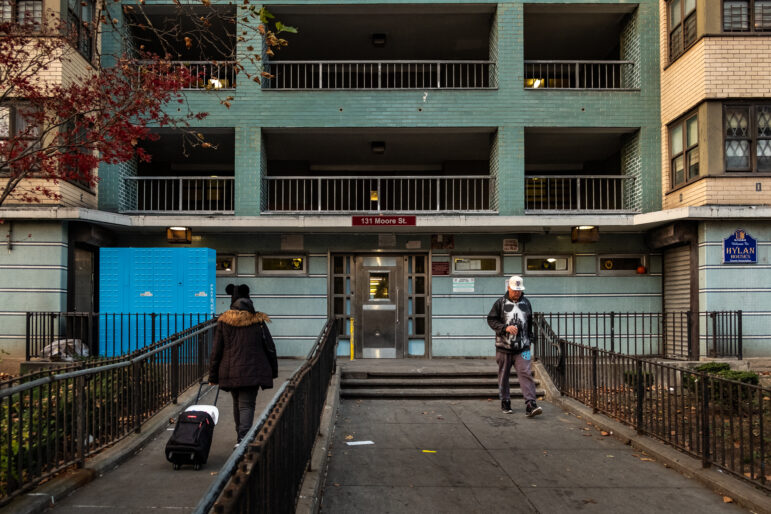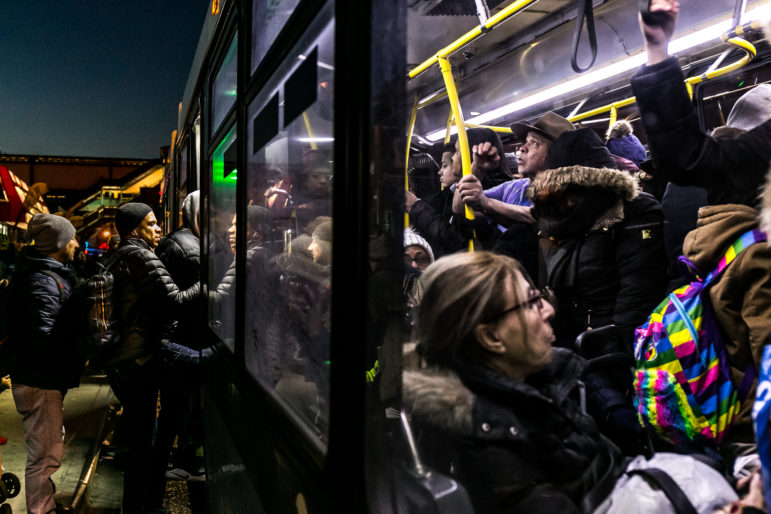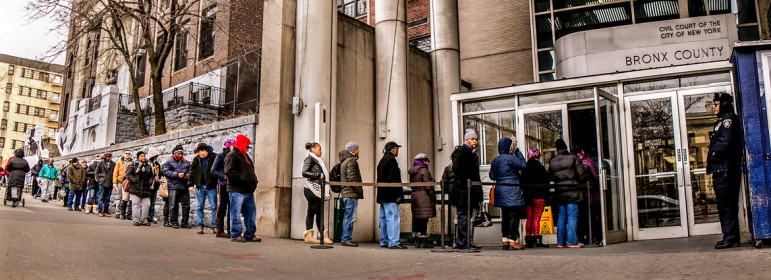
Adi Talwar
A long line of tenants waiting to enter is a daily sight outside Bronx housing court. Most will never meet a lawyer not working for their landlord.
The Right to Counsel bill that would guarantee attorneys to low-income tenants facing eviction in housing court now has 35 sponsors. There is an “unprecedented citywide coalition,” supporting his bill, Councilman Mark Levine says. It includes Comptroller Scott Stringer and Public Advocate Letitia James. Both Speaker Melissa Mark-Viverito and Mayor de Blasio took time in their annual State of the City speeches to help make the case that tenants need lawyers in housing court.
Introduced by Levine and Councilwoman Vanessa Gibson last year, the legislation has been met with a groundswell of support in a city where affordable housing is being made a major priority. The only question is, will the bill move toward law anytime soon?
Mark-Viverito’s office could offer no timeline for the measure reaching the Council floor. As of this writing, more than a year after its introduction, not even a committee hearing has been scheduled for it. And despite the mayor’s support for more funding for tenants in legal trouble (as well as multiplying funds for helping low-income people get representation in court), de Blasio’s office would not say if he’ll get behind the measure.
“We are reviewing the legislation, and clearly tenant representation is a significant priority for this administration,” a spokesperson from the mayor’s office said.
The bill would guarantee attorneys for tenants in housing court if they are facing eviction and their income is less than 125 percent of the poverty level. Statistics show that more than 90 percent of landlords are represented by attorneys in housing court, while over 90 percent of tenants are not. More than one in three cases of family homelessness in New York City is the result of eviction. A recent City Limits investigation found that the lack of tenant attorneys in housing court lends daily operations in those facilities little resemblance to the pursuit of justice.
The City Hall spokesperson would not elaborate on which elements of the bill were under consideration. But the sticker price is a possible sticking point. The city’s Independent Budget Office has estimated that the bill would cost somewhere between over $150 million and more than $250 million annually, but that it would also save the city some $53 million in shelter expenses. Levine believes that if other savings were taken into account—healthcare services given to homeless families, disruptions to schooling that force students to be bused and unemployment insurance given out to people who lose their jobs after losing their homes—the measure could end up creating savings for the city.
“When you go to housing court and the lawyer meets you at the door to tell you what’s in their interest, that’s the lawyer representing the landlord. There’s nobody representing you. And that’s got to change in this town,” Stringer told a group of housing advocates recently in the Bronx.
Another piece of legislation touted by Mark-Viverito in her State of the City speech would create Office of the Civil Justice Coordinator, charged with creating a plan to ensure New Yorkers have access to legal help. That measure could make it to the floor first, and the office it creates used to build momentum for Right to Counsel. And there has already been a huge increase in funding from the City Council and the mayor’s office for legal services in the past year, meaning many more tenants have access to an attorney now than when de Blasio took office. But they continue to get nudged.
“There are those that say that increased money for legal services and the speaker’s bill to establish an office of a civil justice coordinator should be enough,” says Susanna Blankley, director of housing organizing for Community Action for Safe Apartments, which is a member of Right to Counsel NYC Coalition. “They are really amazing steps in the right direction and we celebrate the administration for taking these steps. But we can’t stop there. Why would we?”
More petitions were filed in Bronx Housing Court than in any other borough in 2013 — more than 33 percent of the 248,732 filed citywide, though Bronx residents make up less than 20 percent of the city’s population.Tenants Battle Landlords and Bureaucracy in Housing Court
Reforms of housing court have done little to change the way business is done there: Via deals negotiated by landlord lawyers in the hallway with tenants who rarely get the help of an attorney or see a judge.Housing Court Sees Rising Pressure in Most Affordable Borough
The Bronx is the most affordable borough in the city, but its low-income families also have the hardest time affording the rents they’re charged—which are rising. Bronx Housing Court sees perverse incentives, deadbeat public agencies and more.As Housing Court Strains, Debate in Bronx Over How to Ease Crisis
Tenants who fail to save their homes in Bronx Housing Court often end up in shelters, to which the borough contributes more people than any other. As borough aims to build housing for young professionals, will more reforms to housing court stem the tide?
* * * *
City Limits coverage of the Bronx is supported by the New York Community Trust.


